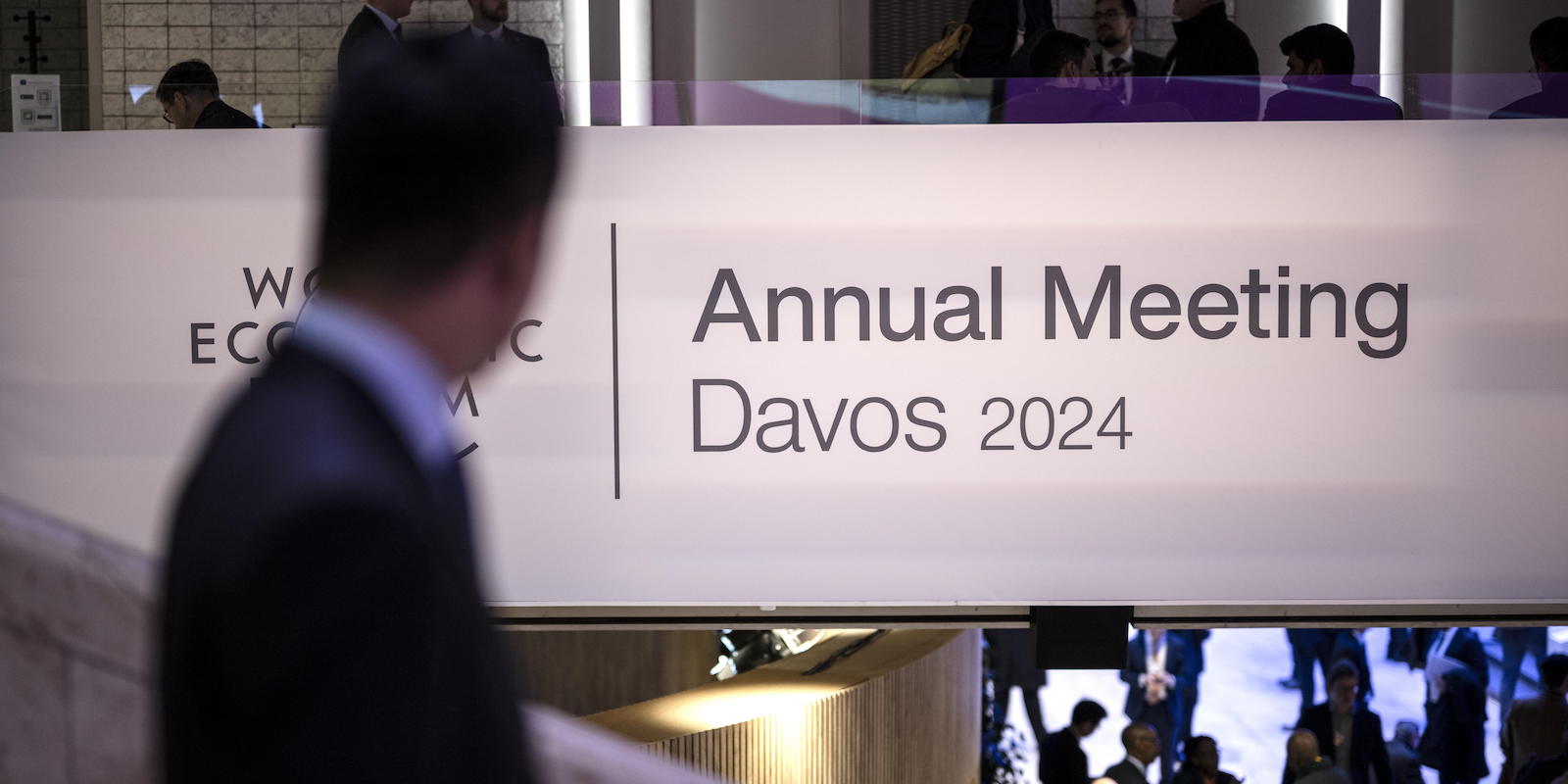Friday, January 19, 2024
Between January 15 and 19, the annual meeting of the World Economic Forum was held in the town of Davos, Switzerland. On this occasion, the decarbonization roadmap has appeared among the main topics not only as a necessity, but also as an opportunity.
Text by José Castán/Javier Muñoz. Photo by EFE/EPA/GIAN EHRENZELLER.
A new session of the World Economic Forum, which is held every year in Davos, Switzerland, discussed current issues, beyond military conflicts, such as artificial intelligence and the energy transition, with a special emphasis on green fuels.
In the run-up to the Davos summit, the World Economic Forum published a report on the 2024 Global Risks listing the main risks and the fact that they are increasing, but at the same time the experts consulted consider that it is not inevitable that their worst effects will occur and that we are in a unique position to respond and avoid their consequences.
Cybercrime, the adverse effects of artificial intelligence (AI), extreme weather phenomena, the cost of living crisis, and sociopolitical polarization are among the main risks.
"The impact and timeline for each risk area is different, as is our ability to mitigate or prepare for them. When combined, the risks increase: conflicts directly harm the planet and prevent the much-needed collaborative action on climate change," the experts warned.
Green molecules, a revolution in employment
As in other sessions, the Davos forum is also a place to showcase reports and progress in certain economic sectors. This was the case of the presentation of the report "Green molecules: the imminent revolution of the employment market in Europe," sponsored by Cepsa and ManpowerGroup, which highlights that renewable fuels will increase Europe's GDP by 145 billion euros by 2040.
The text highlights that new renewable fuels, such as green hydrogen and biofuels, could create 1.7 million new jobs by 2040, with Spain playing a special role as it will lead in the next two decades in the production of green hydrogen and related employment growth. The pull factor of the Spanish industry involved in green molecules will generate more than 116,000 jobs in this decade and 181,000 by 2040, corresponding to 11% of the total employment created in the EU and the United Kingdom, ahead of the United Kingdom (173,000), Germany (145,000) and France (105,000).
This pioneering report, which analyzes for the first time the economic impact of green molecules in terms of job creation, was presented in Davos at an event attended by Maarten Wetselaar, CEO of Cepsa, together with Becky Frankiewicz, President of ManpowerGroup for North America, and Andrea Fuder, Chief Purchasing Officer of Volvo.

Wetselaar noted the leading role that Spain should play in this new era because "it has the cheapest green electricity in Europe" because "it has plentiful sunshine, as all tourists know, and abundant wind. But, thirdly, the most important thing is that it has a lot of space. In Spain, it is still possible to build large solar and wind parks on land without necessarily competing for space with agriculture, cities, or towns."
He noted that in light of the enormous challenge posed by climate change, at Cepsa, "we intend to lead this revolution through our own transformation into a company that produces green molecules such as green hydrogen and biofuels to decarbonize sectors such as heavy transport and industry, which cannot be electrified."
For her part, Becky Frankiewicz (ManpowerGroup) noted that "citizen-driven green transition means giving equal importance to people and the planet," while calling for "governments and companies to commit their efforts to reducing fossil fuels through their transition programs."
At the presentation of the study, Andrea Fuder, Volvo's Director of Purchasing, explained that her company wants to have "a greenhouse gas neutral value chain by 2040, including our dealers and our supply network."
The report also noted that, of the new jobs of the new jobs generated by green hydrogen and biofuels by 2040, 88% will be in sectors other than energy, such as the service, industrial, and construction sectors, indicating that the green molecule economy has a driving impact on the entire productive value chain.
¿Te ha parecido interesante?





